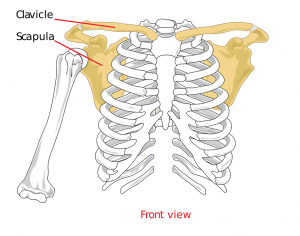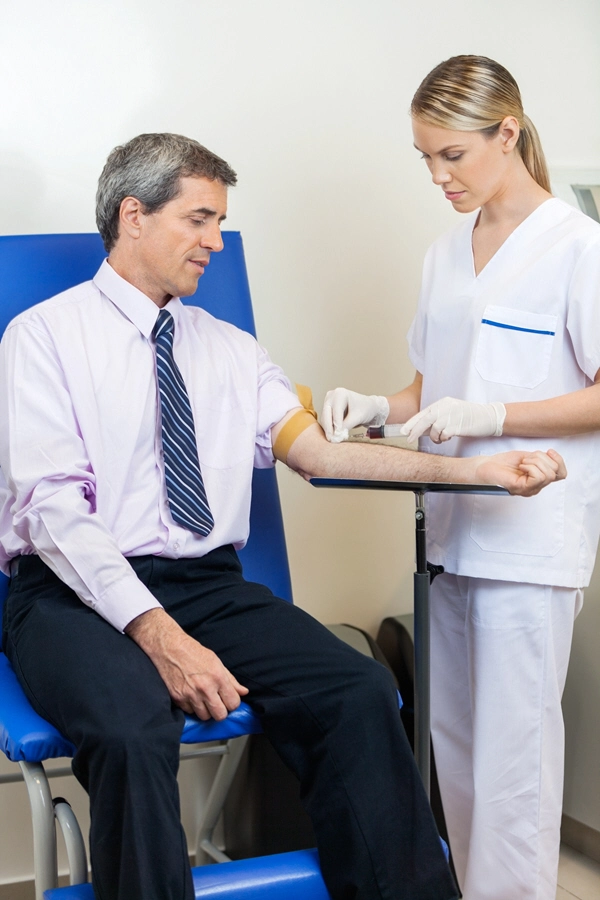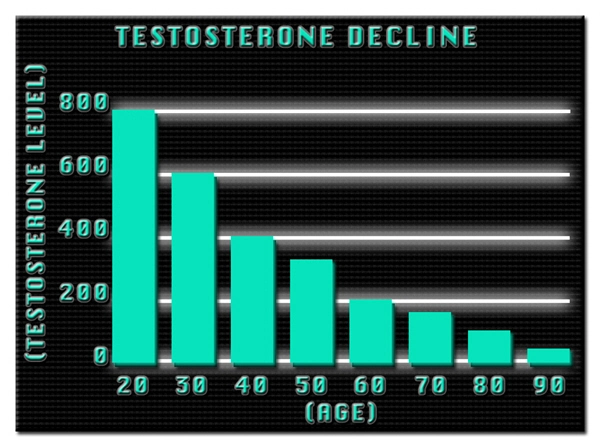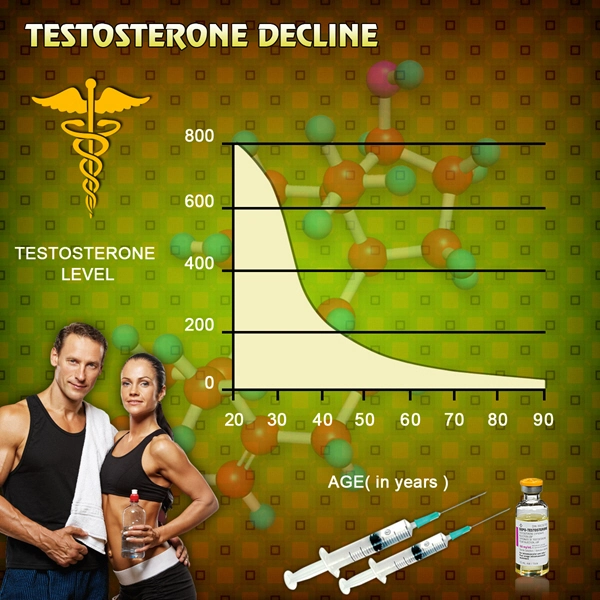Testosterone and Estrogen Imbalance May Impair Shoulder Joint Health
 Getting older is associated with a lot of negative consequences. Many of these consequences are the result of Hormone Imbalance. Increased body fat, sleep issues, lack of energy, and depression are all possible symptoms of Hormone Imbalance. A recent study highlights another sign of Hormone Disruption—Joint Degradation.
Getting older is associated with a lot of negative consequences. Many of these consequences are the result of Hormone Imbalance. Increased body fat, sleep issues, lack of energy, and depression are all possible symptoms of Hormone Imbalance. A recent study highlights another sign of Hormone Disruption—Joint Degradation.
While our sex hormones are obviously important for libido and sexual health, they are also intricately involved in numerous other critical functions. Dr. Peter Chalmers recently performed a study that explored the effects of sex hormones on joint function and health. Specifically, he focused on how these hormones impacted the flexibility of the rotator cuff. Chalmers' study was published in The Journal of Bone & Joint Surgery. He found that Low-T increased the risk of Rotator Cuff injury in men and Low Estrogen Levels were a risk factor in women.
The Rotator Cuff and Its Importance
The Rotator Cuff is a collection of muscles and joints that attach your arm to the shoulder. Muscles lock the joint in place, and tendons attach to the shoulder, giving you free range of movement. While this arrangement gives the arms flexibility, the complexity of the structure can also make them prone to injury. Damage to any of the tendons involved is a big problem, leading to mobility issues and pain. It also weakens the connection between the arm and shoulder, increasing the odds that they become separated and create a debilitating injury.
There are many individual factors that contribute to the risk of Rotator Cuff injury. Sometimes it can be the result of a single point of impact. It can also be worn down from years of heavy labor. There's also an age component. As we get older, the Rotator Cuff connections simply get weaker. Bone spurs, repetitive motion, and circulatory issues can also endanger the rotator cuff. Dr. Chalmer's study investigates how Sex Hormone Imbalance can threaten the Rotator Cuff.
Insurance Records Hold Wealth of Health Data
This study explored data drawn from two health insurance databases, looking at nearly 230,000 cases that resulted in Rotator Cuff surgery from 2008-2017. The wealth of data allowed Dr. Chalmers to have very strong experimental and control groups. The surgery patients were compared to men and women that didn't have to get the surgery.
The average age of the Rotator Cuff patients was 54, and the ratio of women to men was 42/58. The control group was paired very tightly with the surgery patients, except that the latter was a bit more likely to smoke. Overall, men diagnosed with Low-T were 89% more likely to have needed Rotator Cuff surgery. On the other hand, women had a 48% higher chance of needing the surgery.
Researchers Compare Data to Veterans Administration Database
Dr. Chalmers and associates compared the insurance data to health information collected from the Veterans Administration Geneology Database. The government collects thorough data from the millions that get healthcare through the VA and offer this wealth of statistics to healthcare researchers for analysis. This gives the researchers a second source isolated from the previous health insurance database, allowing them to corroborate their results.
The team performed a similar examination of these patients, looking at men and women needing Rotator Cuff surgery and comparing them to a control group. Dr. Chalmers found that Estrogen Deficiency increased the odds of Rotator Cuff Surgery by 2.5x for women. Testosterone Deficiency increased this risk by 3x for men.
The same researchers previously found that women with a certain mutation of the Estrogen-receptor were more at risk of Rotator Cuff failure. As you can see, there is a similar trend in both pools of data—Sex Hormone Imbalance puts joint and muscle health at risk.
If you're interested in shielding and preserving your joint health and function, you may benefit from having your Hormone Levels tested. Catching Low-T or Estrogen Imbalance early may help you avoid the hassles and dangers associated with joint injuries, muscle deterioration, and more!

- The Most Common Symptoms of Low Testosterone in Both Old and Young Men [Last Updated On: February 13th, 2025] [Originally Added On: January 23rd, 2021]
- The Results Are In: The Effects of TRT on Men with Prostate Cancer [Last Updated On: January 5th, 2025] [Originally Added On: February 25th, 2021]
- Treating Low Testosterone with Hormone Therapy (TRT): The Fundamentals [Last Updated On: February 16th, 2025] [Originally Added On: April 15th, 2021]
- The Relationship Between Erections and the Estrogen/Testosterone Ratio [Last Updated On: June 2nd, 2025] [Originally Added On: April 15th, 2021]
- Testosterone Levels Main Determining Factor Behind Fracture Risk in Older Men [Last Updated On: March 23rd, 2025] [Originally Added On: April 23rd, 2021]
- Simple Lifestyle Changes to Boost and Naturally Increase Your Testosterone Levels [Last Updated On: February 15th, 2025] [Originally Added On: May 9th, 2021]
- If You Suffer From Low-T, You’re More at Risk for Severe COVID-19 Symptoms [Last Updated On: May 30th, 2025] [Originally Added On: May 30th, 2021]
- Is Male Menopause a Real Thing? Yes, Actually [Last Updated On: May 31st, 2025] [Originally Added On: June 6th, 2021]
- Testosterone Therapy May Have Positive Effects on Non-Alcoholic Fatty Liver Disease [Last Updated On: June 1st, 2025] [Originally Added On: June 30th, 2021]
- Focus on These Five Workouts to Naturally Boost Both HGH and Testosterone [Last Updated On: April 6th, 2025] [Originally Added On: March 16th, 2022]
- Does Every Man Experience Erectile Dysfunction as He Gets Older? [Last Updated On: April 10th, 2025] [Originally Added On: March 25th, 2022]
- The Pros and Cons of Taking DHEA Supplements for Men [Last Updated On: April 11th, 2025] [Originally Added On: April 7th, 2022]
- Avoid These Foods That Reduce Testosterone [Last Updated On: April 16th, 2025] [Originally Added On: June 28th, 2022]
- Tlando: The Super Easy TRT Alternative to Xyosted for Testosterone Deficiency [Last Updated On: April 18th, 2025] [Originally Added On: July 11th, 2022]
- Reasons Why Cialis May Be a Better Option Than Viagra to Treat ED [Last Updated On: April 17th, 2025] [Originally Added On: July 22nd, 2022]
- Can You Suddenly Stop Testosterone Replacement Therapy (TRT)? [Last Updated On: April 25th, 2025] [Originally Added On: October 7th, 2022]
- What is Testosterone? [Last Updated On: April 29th, 2025] [Originally Added On: October 11th, 2022]
- You'd Never Suspect That Your Problems are Caused by Low-T! [Last Updated On: April 15th, 2025] [Originally Added On: March 9th, 2024]



List of USA state clinics - click a flag below for blood testing clinics.
Word Count: 672


















































